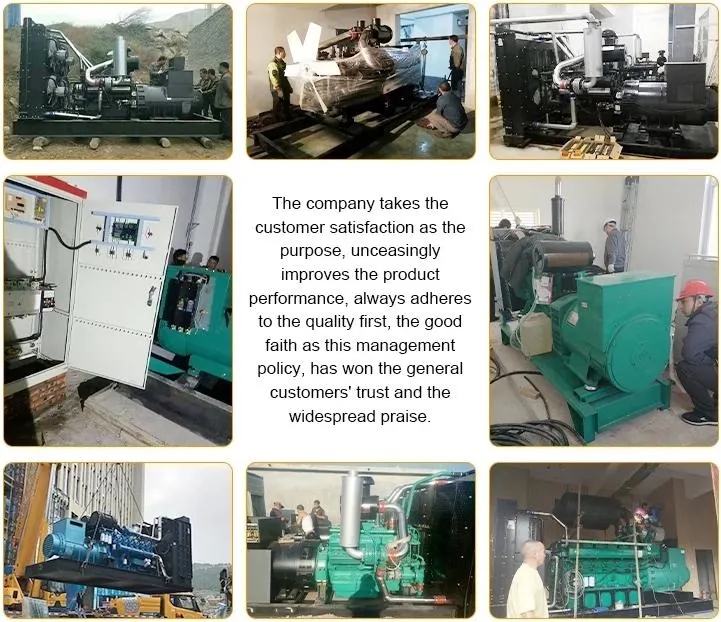Diesel Generator for Low-Temperature Operation Efficiency Performance and Maintenance Considerations
Introduction
In regions where extreme temperatures are common, such as in cold climates or during winter months, the reliable operation of diesel generators becomes a critical concern. Diesel generators are widely used for their durability, reliability, and ability to provide backup power in various applications, including industrial, commercial, and residential settings. However, low temperatures can significantly impact the performance and efficiency of diesel generators, potentially leading to operational issues and maintenance challenges. In this article, we will explore the considerations for operating diesel generators in low-temperature environments, focusing on efficiency, performance, and maintenance practices.
Efficiency Considerations
Low temperatures can have a direct impact on the efficiency of diesel generators. Cold weather affects the viscosity of the fuel, making it thicker and harder to combust efficiently. This can result in incomplete combustion, reduced power output, and increased fuel consumption. To address these efficiency challenges, several measures can be taken:
1. Fuel Quality: Using high-quality diesel fuel with the right additives can improve combustion efficiency and prevent fuel gelling in cold temperatures. Fuel additives such as anti-gel agents and cold flow improvers can help lower the pour point of diesel fuel and enhance its flow characteristics.
2. Preheating Systems: Installing preheating systems for the fuel, coolant, and engine block can help maintain optimal operating temperatures in cold environments. Fuel heaters, block heaters, and coolant heaters are commonly used to preheat diesel generators before starting them up, ensuring smooth operation and efficient combustion.
3. Insulation: Proper insulation of critical components, such as the fuel lines, fuel tanks, and engine compartment, can help retain heat and prevent heat loss in low-temperature conditions. Insulating materials like thermal jackets, heat tape, and insulation blankets can be applied to key components to minimize heat dissipation and improve overall efficiency.
Performance Considerations
In addition to efficiency concerns, low temperatures can also impact the performance of diesel generators. Cold weather can affect the starting reliability, power output, and overall operation of the generator. To optimize performance in low-temperature environments, the following factors should be considered:

1. Cold Start Systems: Diesel generators equipped with cold start systems, such as glow plugs or intake air heaters, are better suited for reliable operation in cold climates. These systems help preheat the combustion chamber and facilitate easier starting, especially in sub-zero temperatures.
2. Battery Capacity: Cold weather can reduce the cranking power of batteries, making it challenging to start diesel generators. Ensuring that the battery capacity is adequate for cold-weather operation and using cold-cranking amps (CCA) rated batteries can help maintain the necessary starting power in low temperatures.
3. Lubrication: Cold temperatures can affect the viscosity of engine oil, leading to poor lubrication and increased wear on engine components. Using synthetic or multi-grade oils with lower viscosity index can improve cold-weather performance and enhance lubrication efficiency in diesel generators.
Maintenance Considerations
Proper maintenance practices are essential for ensuring the long-term reliability and performance of diesel generators in low-temperature environments. Cold weather conditions can accelerate wear and tear on components, increase the risk of fuel gelling, and pose challenges for operational readiness. To mitigate these maintenance issues, the following maintenance considerations should be taken into account:
1. Regular Inspections: Conducting regular inspections of the generator system, including fuel lines, filters, coolant levels, batteries, and electrical connections, is crucial for identifying potential issues early on. Inspecting for 150kw diesel generator for temporary housing of fuel contamination, leaks, corrosion, and wear can help prevent costly repairs and downtime.
2. Fuel Management: Proper fuel management is critical for diesel generators operating in cold climates. Storing fuel in insulated tanks, using fuel additives, and monitoring fuel quality can prevent fuel gelling and ensure a consistent fuel supply for the generator.
3. Winterization Procedures: Implementing winterization procedures for diesel generators before the onset of cold weather is essential for protecting the system from freezing temperatures. This may include draining water from fuel tanks, adding anti-gel additives, and adjusting coolant levels to prevent freezing.
Conclusion
Operating diesel generators in low-temperature environments presents unique challenges that can impact efficiency, performance, and maintenance requirements. By implementing appropriate measures such as using high-quality fuel, installing preheating systems, optimizing battery capacity, and conducting regular maintenance checks, diesel generators can be effectively operated in cold climates with minimal disruptions. Understanding the considerations outlined in this article is essential for ensuring the reliable operation of diesel generators in low-temperature conditions and maintaining their longevity and performance over time.